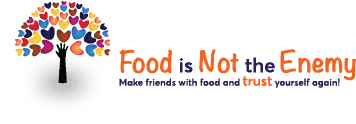Happy New Year!
Ah, the time of year for a New Year’s resolution. “This year, I really will lose weight and get fit! I promise, I swear! This year is the year – for real this time.”
How many times have you said that before?
The New Year seems to give us a sense of renewal, starting over, and optimism for the future. We make resolutions in hopes of becoming a better person or more (or, in this case, less) of the person we want to be.
Exercising more and losing weight are often at the top of the list of New Year’s resolutions. Are they on your list? Have you made one or both of these resolution last year or the years before with some, little, or no success? Have you promised yourself that this year you will finally be successful, but you have no idea how?
Often, changing our behaviors and patterns are a lot more complex than just resolving to do so. Therefore, I would like to offer some suggestions for working toward and actually accomplishing these goals.
Stop dieting. Your own personal experience, studies on diets and even diet ads that now say “results not typical” all tell us that diets don’t work! Yet, we keep trying and trying to use dieting to lose weight. Instead, we end up vilifying food, feeling bad about ourselves for eating forbidden foods and desiring these foods even more. This is a cycle that doesn’t lead to weight loss; only to shame and more eating. Ending the diet cycle will bring freedom from the insanity dieting brings and can actually lead to weight loss that lasts a lifetime. It works because you start to eat to fuel your body rather than to feed your feelings.
Tackle change in several small steps rather than big leaps. Realistically, very small steps are more likely to bring more change than bigger steps. Set yourself up for success by choosing a small step that you know you can accomplish! For example, vow to walk only 5 extra minutes rather than increasing your walk by 30 minutes. Eventually, you will reach your 30 minute goal and it will be a new habit rather than a temporary push. In approaching change this way, you will feel good about your accomplishment and want to do it again. If the step is too big, you are more likely to feel the pang of failure – or pull a muscle – and give up.
Take the “exercise” out of the work out; make it fun instead. You are more likely to follow through on physical activity if you enjoy doing it. Choose an activity that is fun and that you love to do. For example, going to a dance class may be more fun than jogging or spinning and therefore, you are more likely to go back. This doesn’t mean that you just have to find the perfect exercise, and it will then always be easy to go off into happy exercise land. A mild resistance once in a while is okay and normal. However, you want to find a physical activity that you enjoy, that you do because it is fun and rewarding… not because it will help you lose weight. It is then that you may actually want to exercise and enjoy its benefits.
Let exercise be your adult form of play. Whenever you next exercise, experiment with bringing play into your exercise: giggle during your play activity, bring your friends in to play with you, act like a child would if he or she were doing your activity – be creative, playful, have fun.
Explore the reasons behind the madness. If you resist exercise or hate your body, discover the underlying reasons. Pay attention to the feelings that come up when you eat or don’t eat, when you work out or don’t work out. Some of these feelings may have nothing to do with food or exercise. Talk to friends who know you well, journal, stop, sit, breath and feel, ask yourself “If it isn’t about food, what might it really be about?” Overeating, under-exercising, and feeling bad about what you eat is rarely really about food; it is about how you feel about yourself.
If you are tired of promising yourself that you will finally lose the weight and keep it off but have tried every advertised method out there to do so with no lasting success, perhaps it is time to go the other direction. The suggestions above will help you do just that. Keep in mind, however, that some steps may not be easy. You may need some extra support, such as seeking the help of a friend, partner, family member, coach or a therapist who is trained in these particular issues.
Good luck to you in becoming the better you in 2010!

